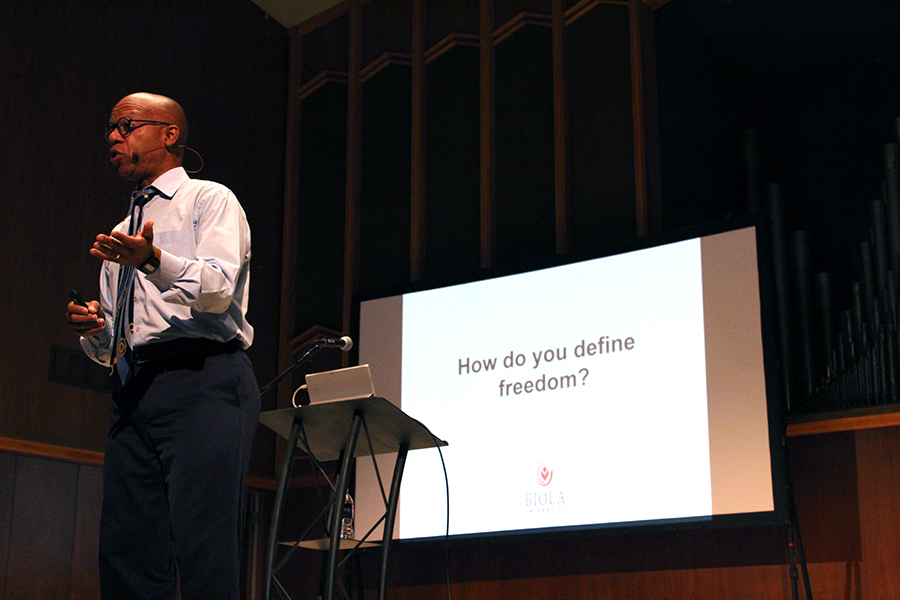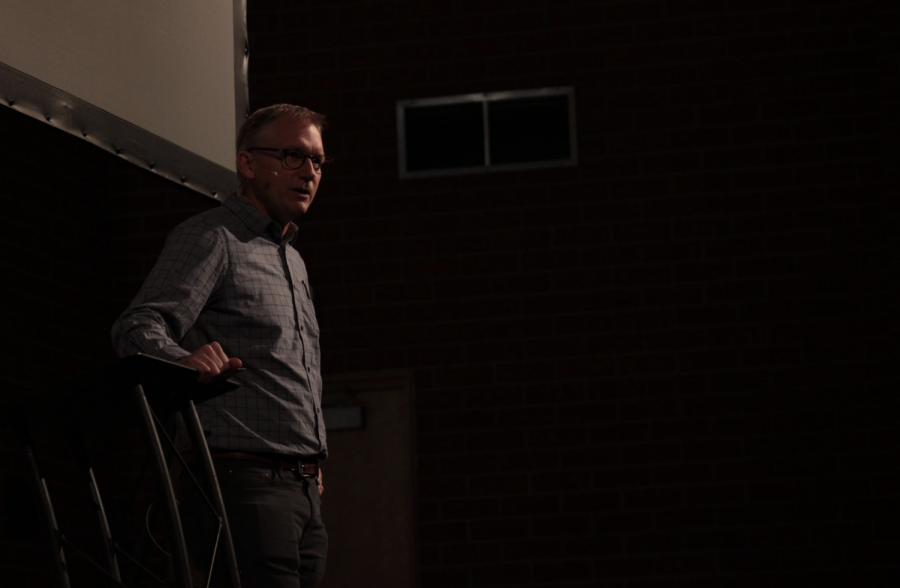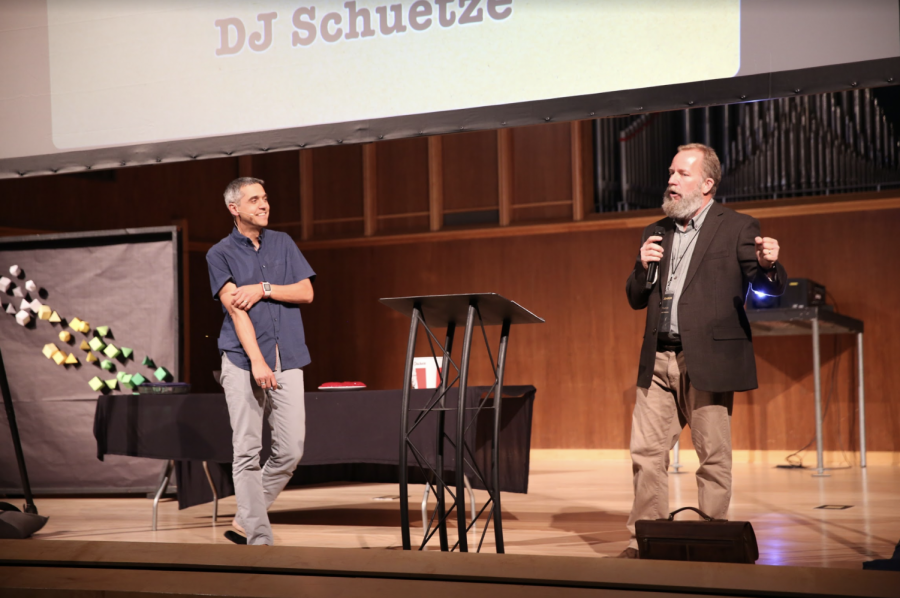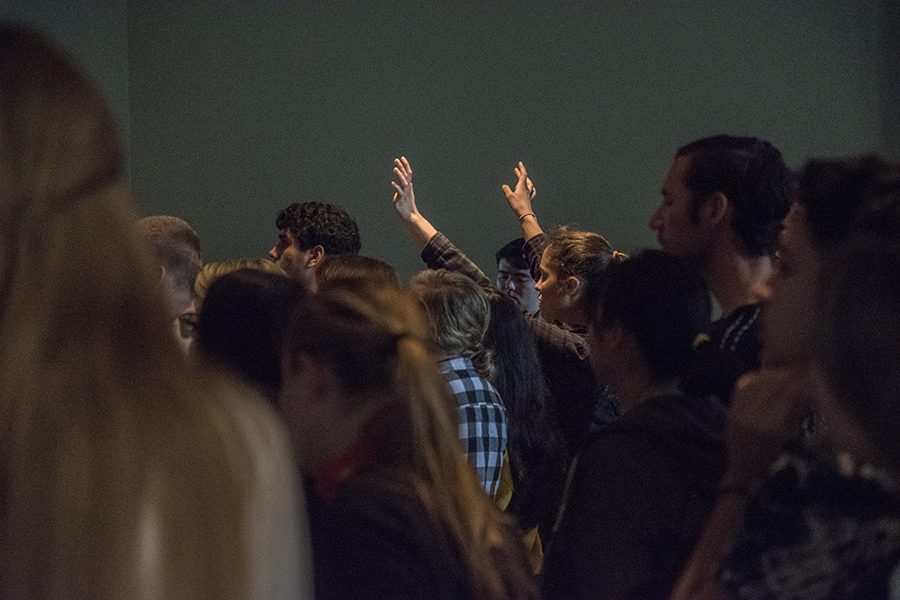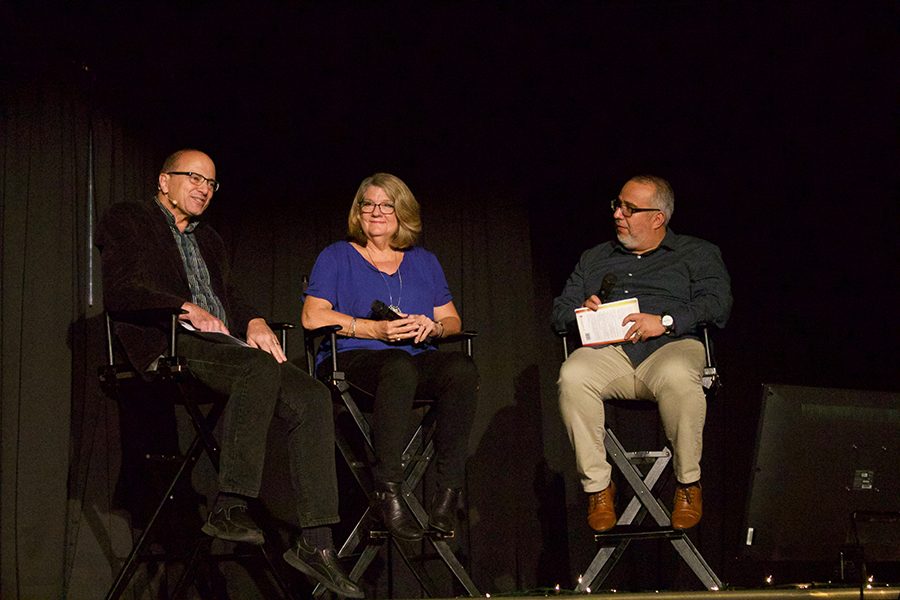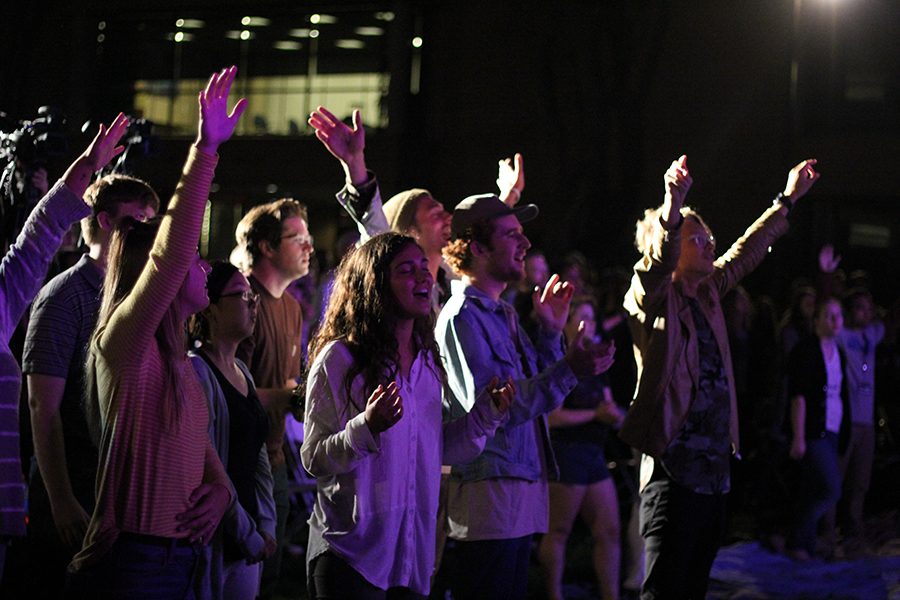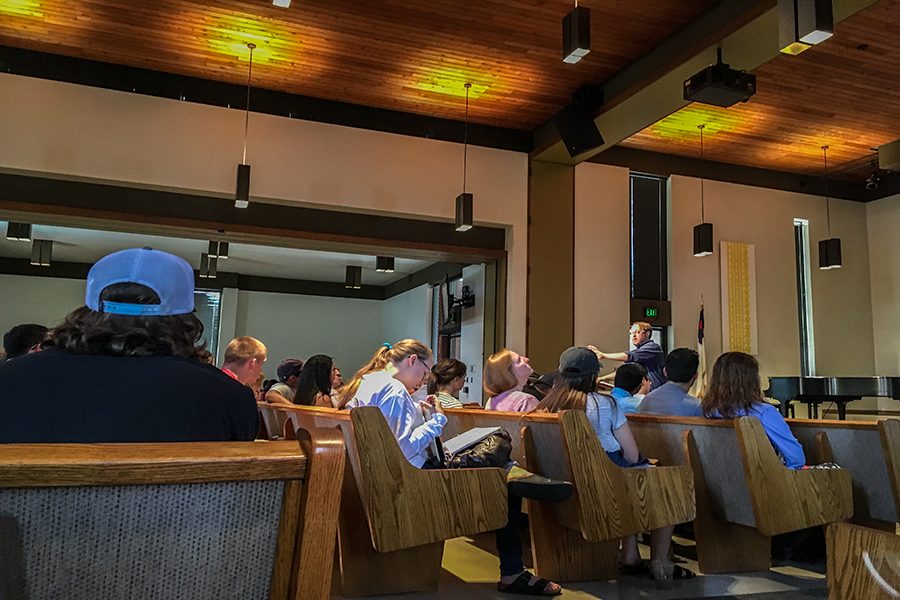2 Corinthians 3:17, “Where the Spirit of the Lord is, there is freedom.” Leon Harris, assistant professor for the Talbot School of Theology, opened and closed his breakout lecture with this verse. In his talk, titled “The Holy Spirit as Perfector of Liberation: A Theological Account of Acts,” he discussed the meaning of living in freedom by the Holy Spirit.
He began his session by asking the audience to describe freedom. A few people answered saying things such as, “Doing whatever you want.” He countered their answers by describing freedom as loving others, denying oneself and bringing liberation—all acts that require the anointing of the Spirit.
Freedom as love
Harris demonstrated freedom as an act of love by using his wife, who sat in the front seat, as a volunteer. In front of the auditorium, he asked his wife if she loved him. Luckily, she responded that she did. In a humorous sense of relief, he elaborated that her response showed voluntary love — true love that is a choice rather than a requirement. In freely giving love, individuals should not expect the other to change and become more like them. Freely loving means loving people for who they are without conditions or requirements.
“Liberation is to freely love the other and to freely share that love,” Harris said to the audience. “Freedom is the ability to love in distinction and unity.”
Freedom as self-denial
After finding a San Francisco Giants’ fan in the crowd, Harris used the example of the Giants and Los Angeles Dodgers rivalry amongst fans to describe freedom as self-denial. While the world tells us to hate our opponents, Jesus would require us to deny our selfish will in order to love our enemies, or San Francisco Giants’ fans, so to speak. If we do not deny ourselves and love those we oppose, we will end up reflecting the turmoil already prevalent in our world. We can only accomplish this difficult task of loving by the work of the Spirit, however. Just as Jesus needed the Spirit to be self-giving and self-denying, so do we.
As Harris quoted from Rev. Professor Colin Gunton, “Freedom comes from denial of self, rather than from its expansion.”
Freedom as a participation of liberation
His final extension of his definition of freedom revolved around the idea of participating in the Spirit’s liberation as a community. He challenged the church to act as a community of liberation. Once believers receive liberation by the Spirit, we can then have the empowerment to further the liberation of others. For instance, once we receive freedom from our material obsessions, we become easily more communal with others, often liberating them from the fear of need. When the church receives the freedom of the Holy Spirit, liberation will bring the church to a better place of equality and caring.
Harris’ lecture brought a reminder of the true meaning of freedom fully enacted only through the Holy Spirit. As Harris said, freedom does not mean a lack of rules or a limitless life, but rather a Spirit-conformed way of living that brings benefits to many.



